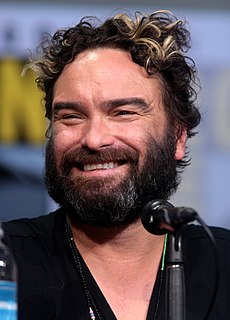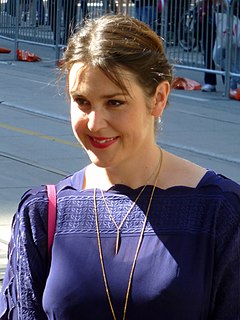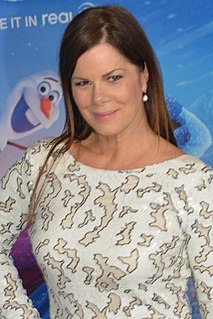A Quote by Johnny Galecki
Comedy is similar to hockey... in only one way. You get a lot of credit for assists. So I try to serve whatever the intention is, be it the joke or the story or the scene or the moment or the kiss, even if it's not my joke or moment.
Related Quotes
I have become a giant fan of the testing process, especially with a comedy. I mean, they tell you what's funny. It's almost tailor-made for people who shoot the way we shoot, trying a million different options and versions of things. Because the audience doesn't laugh at a joke, we put in another joke. If they don't laugh at the next joke, we put in another joke. You just keep doing them and you can get the movie to the point where every joke is funny, if you have enough options in the can.
I feel like any actor should always be thinking about how to serve the story. The thing to be cautious of is trying to make too much of your "moment," or whatever. The story is a lot bigger than you, and you're there to help it along. The thing to think about is whether what you're doing is true to the moment and where the story's going, rather than going, "Here are my scenes. What can I try and do to make the most of them?"
Scripts are a house of cards and you can't just reach in the middle and pull out the middle card because the house of cards will fall down. But at a certain point you almost have to allow that house of cards to get knocked down a few times because you need to make it sturdier. How many times do you hear, "No, that doesn't make sense," or "Why would this happen?" That was a mistake. You shouldn't have those moments, because the moment you're knocked out of the story, then you're dead. And all you can go is moment to moment,or joke to joke. And that's gonna wear people out.
When I was working with Barry Sonnenfeld, I'd watch him set up a shot and talk to him about what he was seeing and what it was to shoot comedy. He told me that a lot of times with comedy, it's not just about getting the joke, but getting a reaction to the joke. That's the laugh - it's somebody's else's reaction to the joke.
There's different kinds of improv. There's Second City improv where you try to slowly build a nice sketch. There's stuff you do in college coffee houses where you just go joke, joke, joke. Bring another funny character with a funny hat on his head. Christopher Guest is more the line of trying to get a story out.
We're used to a story in modern terms as an information delivery device. Certainly on television and even with the studio films, there's really only one note that you get, and that's clarity. And people will sacrifice everything for clarity. They'll sacrifice the joke. They'll sacrifice the moment, or the romance.


































